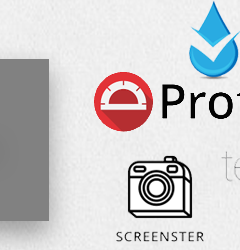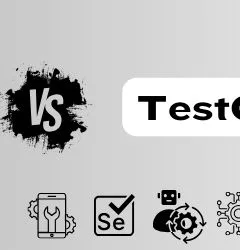In this article, We will learn How to generate Extent Reports in Selenium WebDriver.
What are Extent Reports?
Extent Reports is an open-source reporting library useful for test robotization. It can be fluently integrated with major testing fabrics like JUnit, NUnit, TestNG, etc. These reports are HTML documents that depict results as pie maps. They also allow the generation of custom logs, shots, and other customized details.

Once an automated test script runs successfully, testers need to induce a test prosecution report. While TestNG does give a dereliction report, they don’t give the details.
Using Extent Reports in Selenium
Selenium range reports contain two important classes that are commonly used.
- ExtentReports Class
- ExtentTest Class
Syntax:
ExtentReports reports = new ExtentReports("Path of directory to store the resultant HTML file", true/false);
ExtentTest test = reports.startTest("TestName");
The ExtentReports class generates HTML reports based on the path specified by the verifier. Depending on the boolean flag, an existing report should be overwritten or a new report should be created. “True” is the default, which means that all existing data will be overwritten.
The ExtentTest class saves the test steps to a previously created HTML report.
Both classes can be used in the following integrated ways:
- startTest: Prerequisites for running the test case.
- endTest: Fulfill the following conditions of a test case.
- Log: Record the status of each test step in the HTML report being generated.
- Flush: Delete all previous data on a relevant report and create a brand new one.
The test state can be represented by the following values:
- PASS
- FAIL
- SKIP
- INFO

Report methods take into account two parameters. The first is the test status and the second is the message printed in the generated report.
How to generate Extent Reports in Selenium?
- Import the JAR file: degreereports-java-2.1.2.jar. After downloading the ZIP file, extract its contents to a folder.
- Add the JAR file to the build path of the project using the Build Path -> Set Build Path option.
- Create a new JAVA class for Scope Report with the following code.
package com.browserstack.demo;
import org.junit.AfterClass;
import org.junit.BeforeClass;
import org.junit.Test;
import org.openqa.selenium.WebDriver;
import org.openqa.selenium.chrome.ChromeDriver;
import com.relevantcodes.extentreports.ExtentReports;
import com.relevantcodes.extentreports.ExtentTest;
import com.relevantcodes.extentreports.LogStatus;
public class ExtentDemo {
static ExtentTest test;
static ExtentReports report;
@BeforeClass
public static void startTest()
{
report = new ExtentReports(System.getProperty("user.dir")+"ExtentReportResults.html");
test = report.startTest("ExtentDemo");
}
@Test
public void extentReportsDemo()
{
System.setProperty("webdriver.chrome.driver", "D:SubmittalExchange_TFSQAAutomation3rdpartychromechromedriver.exe");
WebDriver driver = new ChromeDriver();
driver.get("https://www.google.co.in");
if(driver.getTitle().equals("Google"))
{
test.log(LogStatus.PASS, "Navigated to the specified URL");
}
else
{
test.log(LogStatus.FAIL, "Test Failed");
}
}
@AfterClass
public static void endTest()
{
report.endTest(test);
report.flush();
}
}
Runs from the startTest method. It also initializes the Scope Reports object. Any valid custom path can be passed as a parameter to the Scope Reports object.
@Test: This class automatically does the following:
- Open the Chrome browser with the URL https://www.google.com.
- When you open the page, check that the page title is as expected.
- Record the test case status as PASS/FAIL using the logging method described above.
@AfterClass: Post the condition to run the test case: end the test (using the endTest method) and clear the report.
How to generate Extent Reports in Selenium using NUnit?
Using setup fixture:[SetUpFixture]
public abstract class Base
{
protected ExtentReports _extent;
protected ExtentTest _test;
[OneTimeSetUp]
protected void Setup()
{
var dir = TestContext.CurrentContext.TestDirectory + "\;
Deepali works as a Software Development Engineer in Test, at QACraft, she is a computer science engineer with a degree of bachelor and has 3+Years of experience in the software industry as a Manual Tester and Automation Test Engineer. In her free time, she loves reading and podcasts.
Related Post
Categories
- Agile Testing
- Alpha Testing
- Android App Testing
- API Testing
- Automation Testing
- Banking Domain Testing
- Beta Testing
- cloud testing
- Corporate Life
- cross browser testing
- Cypress Testing
- desktop testing
- Difference
- Domain Testing
- E-commerce Website Testing
- E-learning App Testing
- End-To-End Testing
- Functional Testing
- Game Testing
- Healthcare Domain Testing
- Integration Testing
- Interview Questions
- ios App Testing
- Jenkins
- JIRA
- Jmeter
- K6
- Katalon
- Manual Testing
- Mobile App Testing
- Monkey Testing
- Non-Functional testing
- Performance Testing
- Postman
- Regression Testing
- Salesforce Testing
- Sanity Testing
- security testing
- Selenium Testing
- Smoke Testing
- Software Testing
- Stability testing
- Static Testing
- Test Case
- Test Environments
- Test Scenario
- Test Script
- TestRigor
- vdfv
- Web Application Testing
© Copyright 2025 QACraft Pvt. Ltd. All rights reserved.
Contact : +91 9157786796




deepali